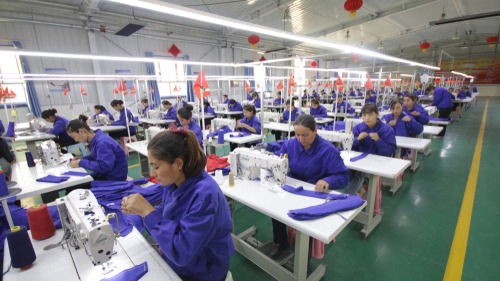
Following up on the demands made by the Uyghur Forced Labor Prevention Act (UFLPA), the U.S. Department of Homeland Security (DHS) last week published its official strategy for barring importations from China’s Xinjiang region and cracking down on goods made from forced labor.
China has come under intense scrutiny over the last few years for its treatment of the Turkic ethnic group known as Uyghurs, whose culture has traditionally dominated the Xinjiang region of northwest China. Passage of the UFLPA in 2021 forbid goods from Xinjiang from being imported to the United States, as well as from specific entities unless importers could prove their goods were not produced with forced labor. DHS was placed as chair of a Forced Labor Enforcement Task Force to implement this demand.
“Our Department is committed to ending the abhorrent practice of forced labor around the globe, including in the Xinjiang Uyghur Autonomous Region where the People’s Republic of China continues to systemically oppress and exploit Uyghurs and other Muslim-majority communities,” Secretary of Homeland Security Alejandro Mayorkas said. “We must combat these inhumane and exploitative practices while ensuring that legitimate goods can enter at our ports and reach American businesses and consumers as quickly as possible.”
As of today, U.S. Customs and Border Protection (CBP) will detain, exclude or seize shipments found to violate the importation restrictions. The agency will also work with the industry to maintain legitimate and lawful supply chains of goods without disruption and will provide briefings to affected industries to help them comply with the new obligations.
The strategy released by DHS covered an assessment of risks of importations from Chinese forced labor operations, an evaluation of forced labor schemes, and the UFLPA’s lists of enforcement, recommendations for how to accurately identify and trace affected goods, description of the resources needed to ensure blockage of forced labor-made goods, guidance to imports and a plan to expand cooperation in this area with nongovernmental organizations and private sector entities alike.
“The importation of goods made using forced labor is an affront to human rights and our national values,” Robert Silvers, DHS Under Secretary for Policy and FLETF chair, said. “Forced labor places legitimate manufacturers, domestically and abroad, at a competitive disadvantage. I am honored to serve as the chair of the FLETF, a body that leads our government’s response to this scourge. The strategy that we have delivered to Congress will produce meaningful progress in combating the use of forced labor while we continue to facilitate lawful trade.”




